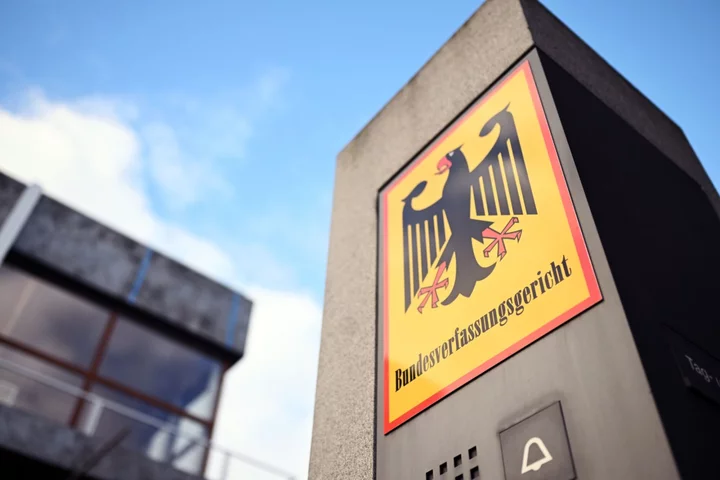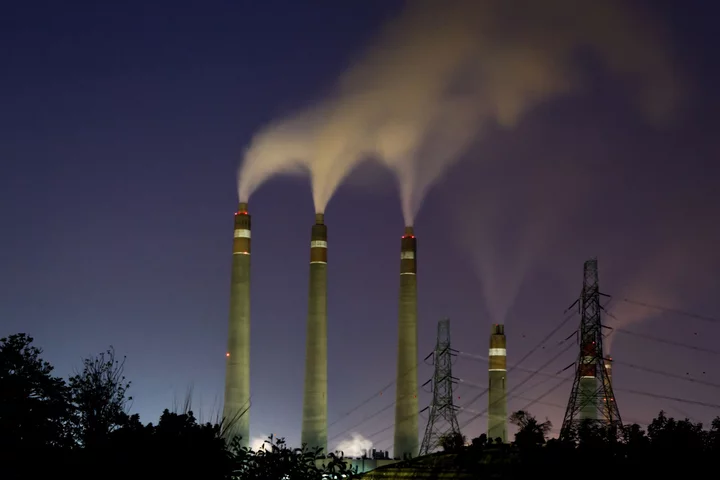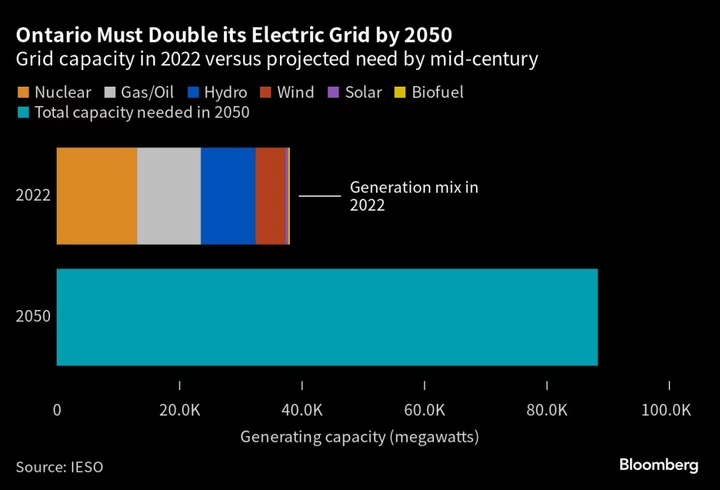Germany’s top court struck down a key element of the government’s plans to address climate change and transform the economy, dealing Chancellor Olaf Scholz’s coalition a major setback that could throw its budget policy into disarray.
The Federal Constitutional Court ruled that the shifting of €60 billion ($65.2 billion) earmarked to tackle the Covid-19 pandemic into an off-budget fund violated German constitutional law. The challenge was filed by lawmakers from the main opposition conservative alliance, who said they wanted to ensure the sustainability of the country’s public finances.
In a ruling issued Wednesday in Karlsruhe, the court said that the scope of the fund must now be reduced by €60 billion.
“If this means that obligations already entered into can no longer be met, the budget legislator must compensate for this elsewhere,” according to the ruling. Funds raised must be spent in the year they were authorized and the government may not circumvent these rules by shifting them to a off-budget fund, said Doris Koenig, a vice president of the court.
Chancellor Scholz plans to address the court’s ruling later this morning, according to a person familiar with the matter.
Opposition lawmakers argued that by channeling the debt authorizations into its Climate and Transformation Fund, known as the KTF, Scholz’s administration violated rules enshrined in the constitution that restrict borrowing.
Germany’s so-called debt brake — created in the aftermath of the 2008 financial crisis — limits annual net new debt to 0.35% of gross domestic product. Exceptions are permitted to help deal with natural disasters and other emergencies, an option the government tapped to address the pandemic.
Budget policy has been one of the main points of contention in Scholz’s coalition of his Social Democrats, the Greens and the Free Democrats and Wednesday’s ruling could spark renewed infighting.
Finance Minister Christian Lindner, the FDP leader, is a self-styled budget hawk who insisted on the restoration of the debt brake last year, while the SPD and Greens are broadly more open to relaxing the borrowing rules.
The issue is likely to be prominent in campaigning for the next general election due in the fall of 2025.
The KTF supports a wide range of measures to accelerate Germany’s transition to a less-polluting economy, including the rollout of heat pumps, electromobility or hydrogen infrastructure. In August, it was topped up to €212 billion for the period 2024 through 2027.
It also funds investments in the nation’s rail network and in building out semiconductor production, including €10 billion in subsidies for a new Intel Corp. plant in the eastern German city of Magdeburg. The funds specific to the case dealt with on Wednesday weren’t earmarked for that project.
The court’s ruling may have significance for some of Germany’s other off-budget special funds, including one worth €100 billion for investing in the nation’s armed forces.
They currently number around 30 and Lindner has vowed to gradually scale them back. The Federal Court of Auditors has criticized the funds as a violation of budget transparency.
The case is: BVerfG, 2 BvF 1/22.
(Updates with details from ruling starting in third paragraph)









